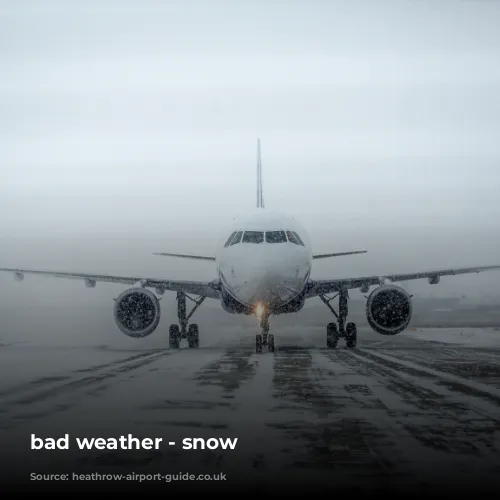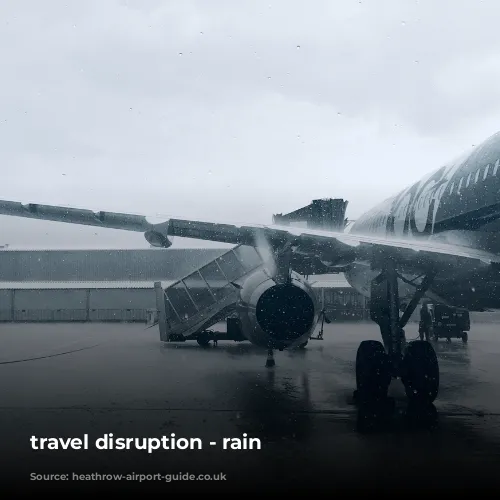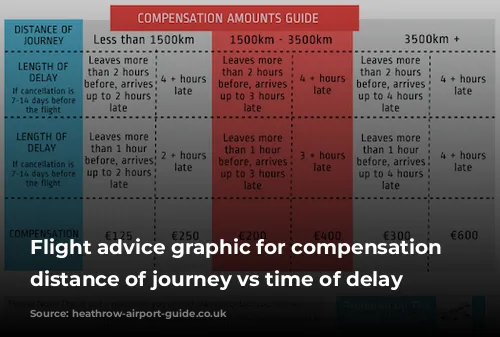It’s never fun when your travel plans get disrupted, especially at a busy airport like Heathrow. Whether it’s severe weather, industrial action, or other unforeseen circumstances, flight delays and cancellations can be frustrating. But don’t worry, we’re here to help you understand your rights and options!
Compensation for Flight Delays
Want to know if you can claim compensation for your delayed flight? Use our handy Compensation Calculator! We’ll help you figure out if you’re eligible for a payout, depending on the reason for the delay and its duration.
Keep in mind that delays lasting less than 3 hours are unlikely to qualify for compensation. In such cases, you’ll need to contact your travel insurance provider or the airline directly to file a claim. We also have a helpful guide that explains the compensation results you might see, so you understand exactly what your rights are.
Getting Around When Flights Are Disrupted
You may be wondering what happens if your flight is cancelled or delayed. Don’t worry, your airline has a legal obligation to get you to your destination! If no later flights are available, they should book you on a flight from another airport and pay for your transportation.
If flying isn’t an option, you have a few other choices:
- Hiring a car: Many car rental companies offer cross-border rentals, allowing you to drive your vehicle to your destination country. Just remember to check for any additional fees.
- Public transport: Explore train routes like the Eurostar, which conveniently connects London with Paris and Brussels.
- Ferries: If you’re heading to Europe, a ferry might be a suitable alternative.
For international travel, you can try booking a flight from another UK airport. If finding an alternative proves impossible, your airline should provide you with a refund within seven days.

Understanding the Causes of Heathrow Delays
Why is your flight delayed? Often, it’s down to weather disruptions, such as snow, fog, or heavy rain. However, there are other factors that can cause flight delays and cancellations:
- Technical issues: A mechanical problem with the aircraft.
- Strike action: Industrial action by airline staff or air traffic controllers.
- Destination closures: For example, a volcanic ash cloud impacting your destination.
The Impact of Weather on Flights
Snow: One of the biggest culprits behind Heathrow delays is snow. Each plane requires de-icing before takeoff, a process that can take time and cause delays.
Ice: Runways and roads must be cleared of snow and ice, a process that takes time and can lead to backlogs when many flights are affected.
Wind: Strong winds can make it challenging for planes to take off and land safely.
Fog: Thick fog can obstruct visibility, making it unsafe for planes to land.
Destination weather: Keep in mind that weather conditions at your destination can also impact flights. For example, a hurricane in Florida or volcanic ash in Bali might prevent your flight from landing.
Staying Informed and Minimizing Disruptions
To avoid unnecessary stress, stay informed about any potential delays or cancellations. Check out news websites, travel apps, Twitter, and radio for the latest updates.
If you’re facing severe weather disruptions, contact your airline and check your flight’s status. If your flight is cancelled, you may be able to claim compensation from your travel insurance provider.
Remember, while flight delays and cancellations are frustrating, they are often implemented for safety reasons. By staying informed and understanding your rights, you can navigate these disruptions more effectively.






